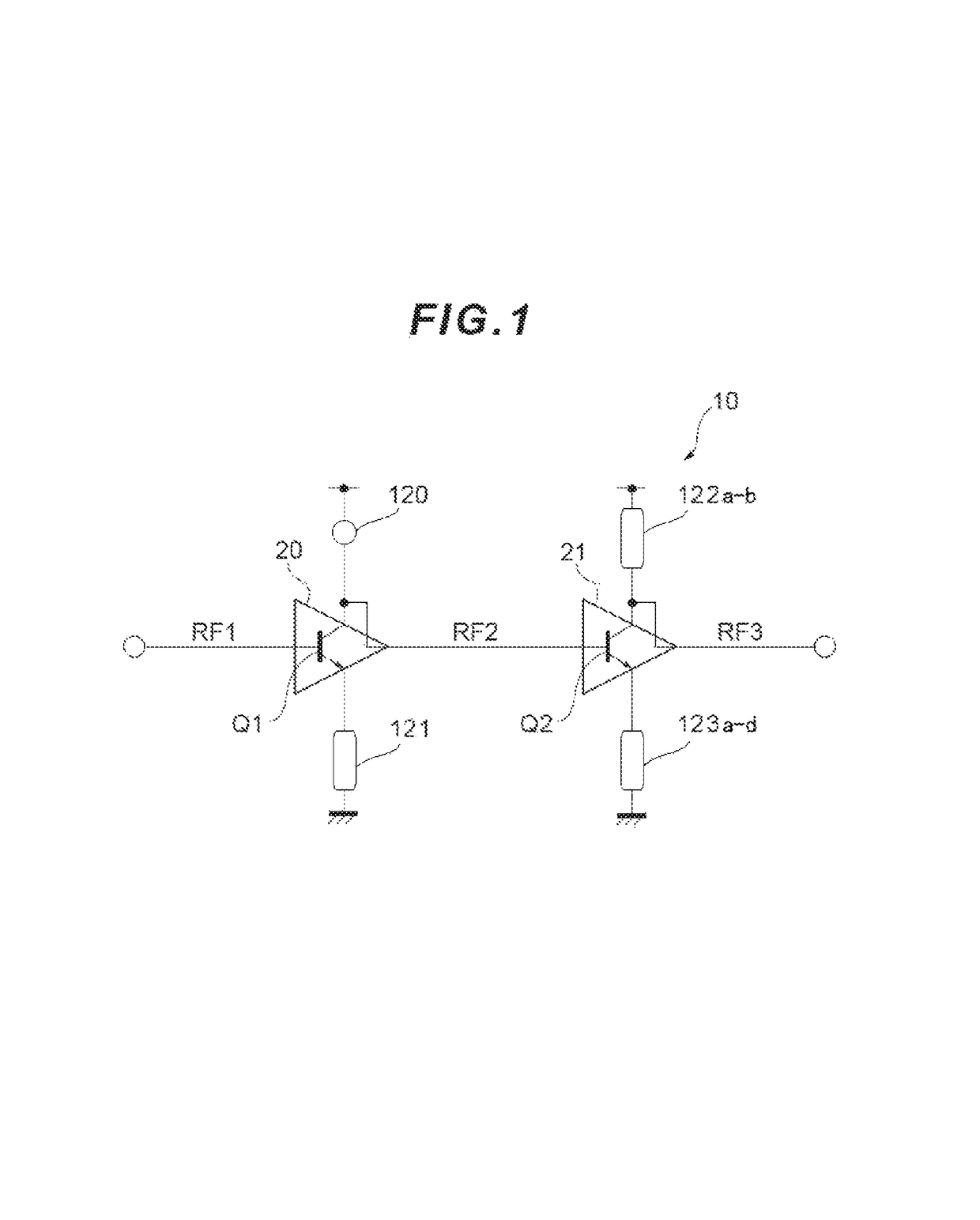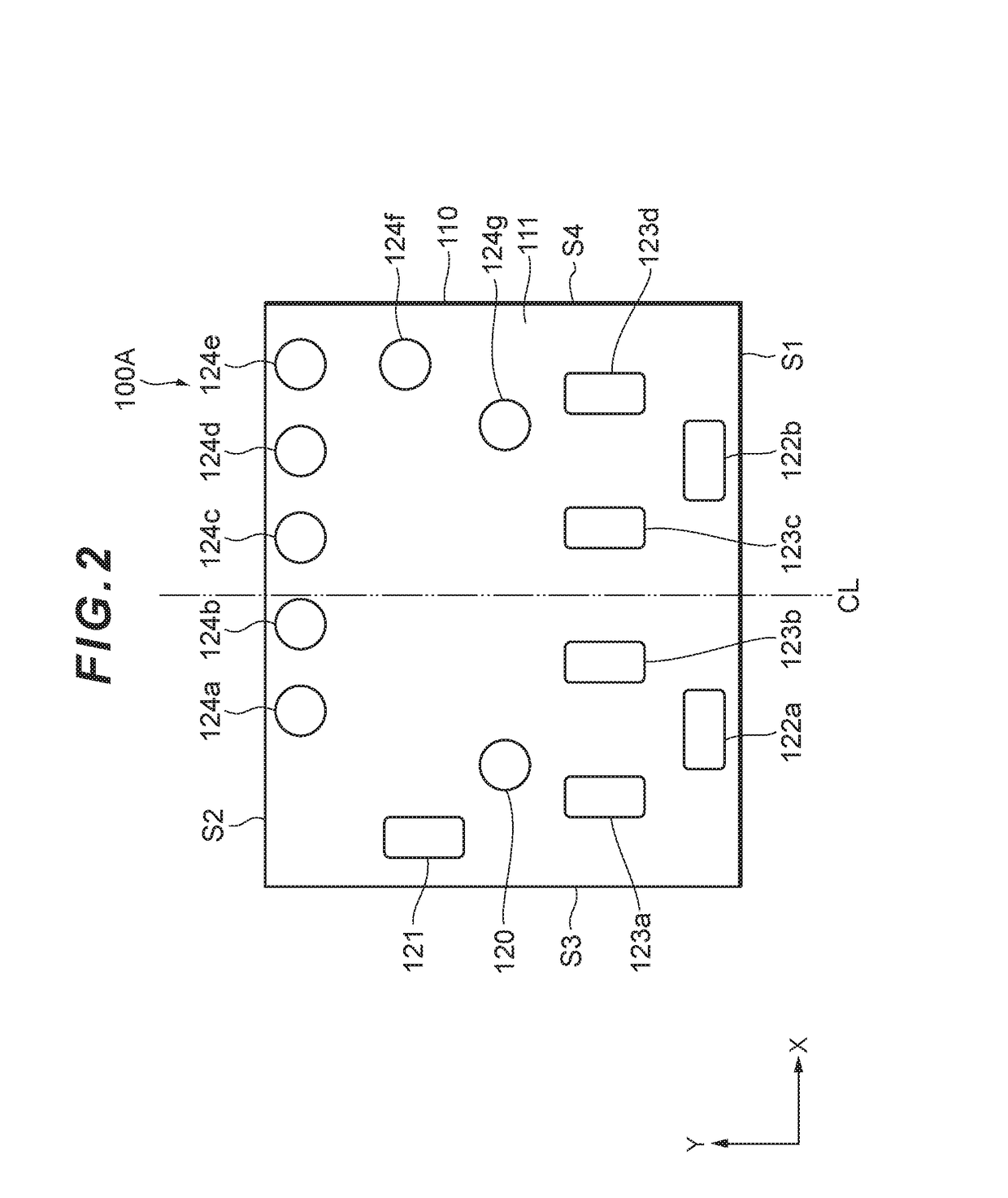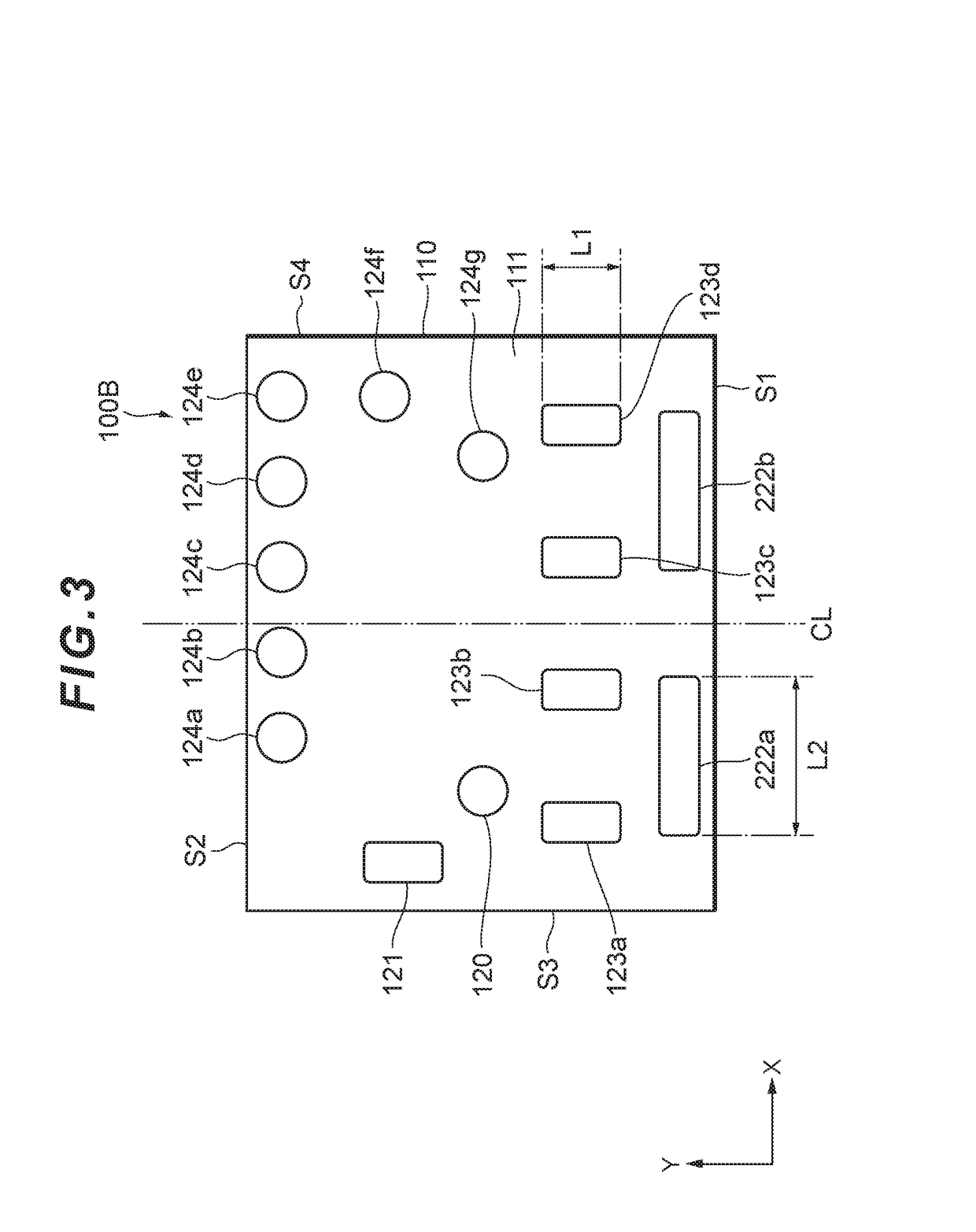Semicondutor chip
a technology of semiconductors and semiconductors, applied in the field of semiconductors, can solve the problems of reducing the mounting area, affecting the characteristics of the transistor, and increasing the temperature, so as to reduce the mounting area and restrain the influence of the heat generated by the transistor
- Summary
- Abstract
- Description
- Claims
- Application Information
AI Technical Summary
Benefits of technology
Problems solved by technology
Method used
Image
Examples
second embodiment
[0037]FIG. 3 is a plan view of a semiconductor chip according to the present disclosure. A semiconductor chip 100B illustrated in FIG. 3 differs from the semiconductor chip 100A illustrated in FIG. 2 in the shapes of bumps connected to the collector of a transistor Q2. More specifically, the semiconductor chip 100B includes bumps 222a and 222b in place of the bumps 122a and 122b.
[0038]As with the bumps 122a and 122b, the bumps 222a (a first part of a third bump) and 222b (a second part of the third bump) are connected to the collector of the transistor Q2, and outputs an amplified signal RF3, which is output from the transistor Q2, to an element outside the semiconductor chip 100B. Further, each of the bumps 222a and 222b is disposed such that the long side direction in the vicinity of a side S1 is substantially parallel to an X-axis. A length L2 of the long side direction (the X-axis direction in FIG. 3) of each of the bumps 222a and 222b is greater than a length L1 of the long si...
third embodiment
[0039]FIG. 4 is a plan view of a semiconductor chip according to the present disclosure. A semiconductor chip 100C illustrated in FIG. 4 differs from the semiconductor chip 100A illustrated in FIG. 2 in the shapes of bumps connected to the collector of a transistor Q2. More specifically, the semiconductor chip 100C includes bumps 322a and 322b in place of the bumps 122a and 122b.
[0040]As with the bumps 122a and 122b, the bumps 322a (a first part of a third bump) and 322b (a second part of the third bump) are connected to the collector of the transistor Q2, and outputs an amplified signal RF3, which is output from the transistor Q2, to an element outside the semiconductor chip 100C. Further, each of the bumps 322a and 322b is disposed such that the long side direction in the vicinity of a side S1 is substantially parallel to an X-axis. A length L3 of the long side direction (the X-axis direction in FIG. 3) of each of the bumps 322a and 322b is smaller than a length L1 of the long si...
fourth embodiment
[0044]FIG. 5 is a plan view of a semiconductor chip according to the present disclosure. A semiconductor chip 100D illustrated in FIG. 5 includes an additional bump 400, as compared with the semiconductor chip 100C illustrated in FIG. 4.
[0045]The bump 400 (a sixth bump) is electrically connected to a part of a harmonic termination circuit F1, which is a specific example of a filter circuit which attenuates a harmonic(e.g. a second harmonic, a third harmonic, or a fourth harmonic) of an amplified signal RF3 output from the collector of a transistor Q2. More specifically, if, for example, the harmonic termination circuit F1 is composed of a capacitor C1 and an inductor L1 connected in series, then the bump 400 may be a terminal that connects a capacitor C1 formed on a semiconductor substrate 110 and an inductor L1 formed on a module board. As illustrated in FIG. 5, the bump 400 is provided on a main surface 111 of the semiconductor substrate 110 and is circular in the planar view of t...
PUM
 Login to View More
Login to View More Abstract
Description
Claims
Application Information
 Login to View More
Login to View More - R&D
- Intellectual Property
- Life Sciences
- Materials
- Tech Scout
- Unparalleled Data Quality
- Higher Quality Content
- 60% Fewer Hallucinations
Browse by: Latest US Patents, China's latest patents, Technical Efficacy Thesaurus, Application Domain, Technology Topic, Popular Technical Reports.
© 2025 PatSnap. All rights reserved.Legal|Privacy policy|Modern Slavery Act Transparency Statement|Sitemap|About US| Contact US: help@patsnap.com



